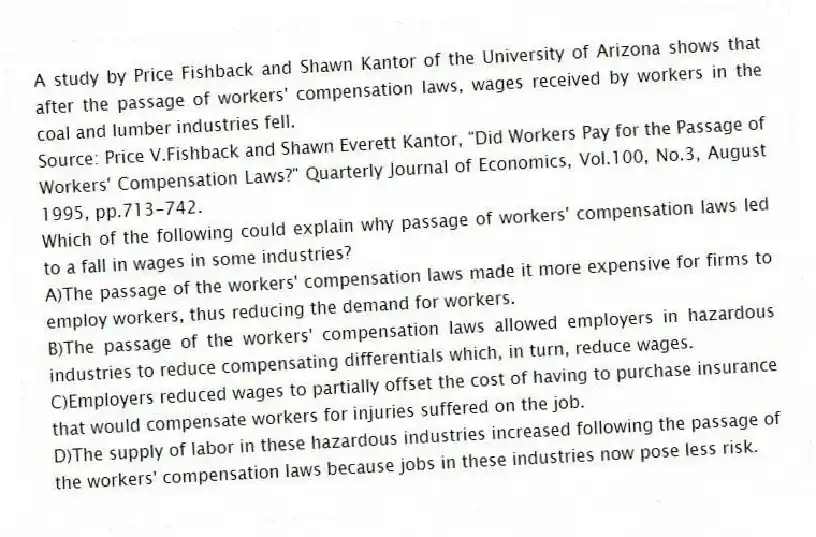
A study by Price Fishback and Shawn Kantor of the University of Arizona shows that after the passage of workers' compensation laws, wages received by workers in the coal and lumber industries fell.
Source: Price V.Fishback and Shawn Everett Kantor, "Did Workers Pay for the Passage of Workers' Compensation Laws?" Quarterly Journal of Economics, Vol.100, No.3, August 1995, pp.713-742.
Which of the following could explain why passage of workers' compensation laws led to a fall in wages in some industries?
A) The passage of the workers' compensation laws made it more expensive for firms to employ workers, thus reducing the demand for workers.
B) The passage of the workers' compensation laws allowed employers in hazardous industries to reduce compensating differentials which, in turn, reduce wages.
C) Employers reduced wages to partially offset the cost of having to purchase insurance that would compensate workers for injuries suffered on the job.
D) The supply of labor in these hazardous industries increased following the passage of the workers' compensation laws because jobs in these industries now pose less risk.
Correct Answer:
Verified
Q173: Painters who paint water towers earn higher
Q174: Since Poland joined the European Union in
Q175: Consider the market for nurses in a
Q176: Consider the market for blackjack dealers in
Q177: If the labor supply curve shifts to
Q179: In 2015, the foreign-born population in the
Q180: If the number of employees who quit,
Q181: Wage differences among workers of different races
Q182: The total value to society of having
Q183: Worker discrimination occurs when
A)workers refuse to perform
Unlock this Answer For Free Now!
View this answer and more for free by performing one of the following actions

Scan the QR code to install the App and get 2 free unlocks

Unlock quizzes for free by uploading documents